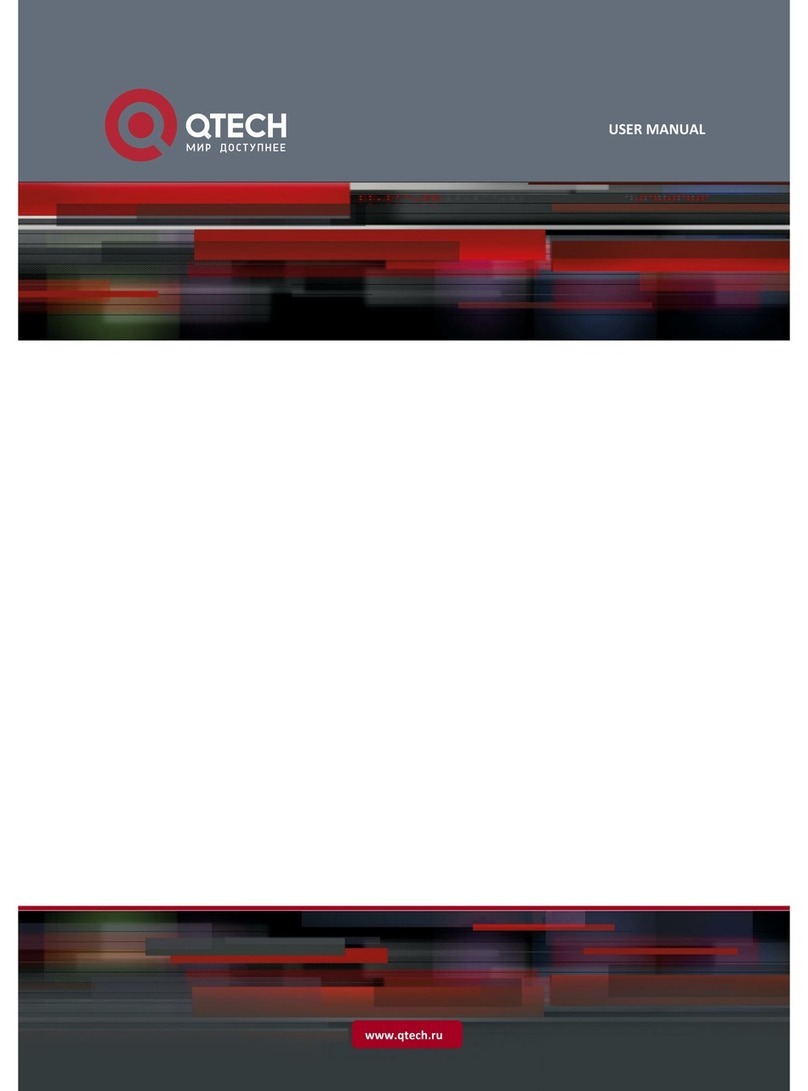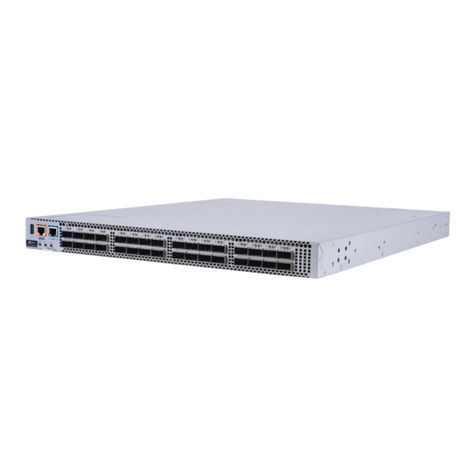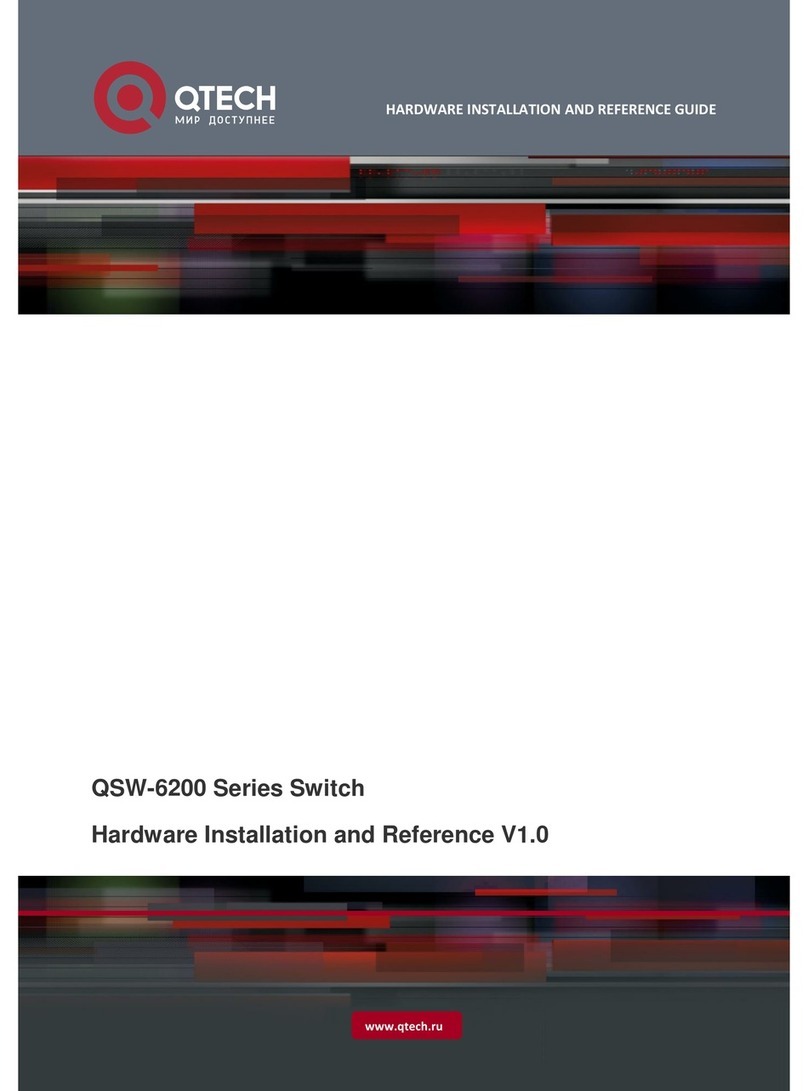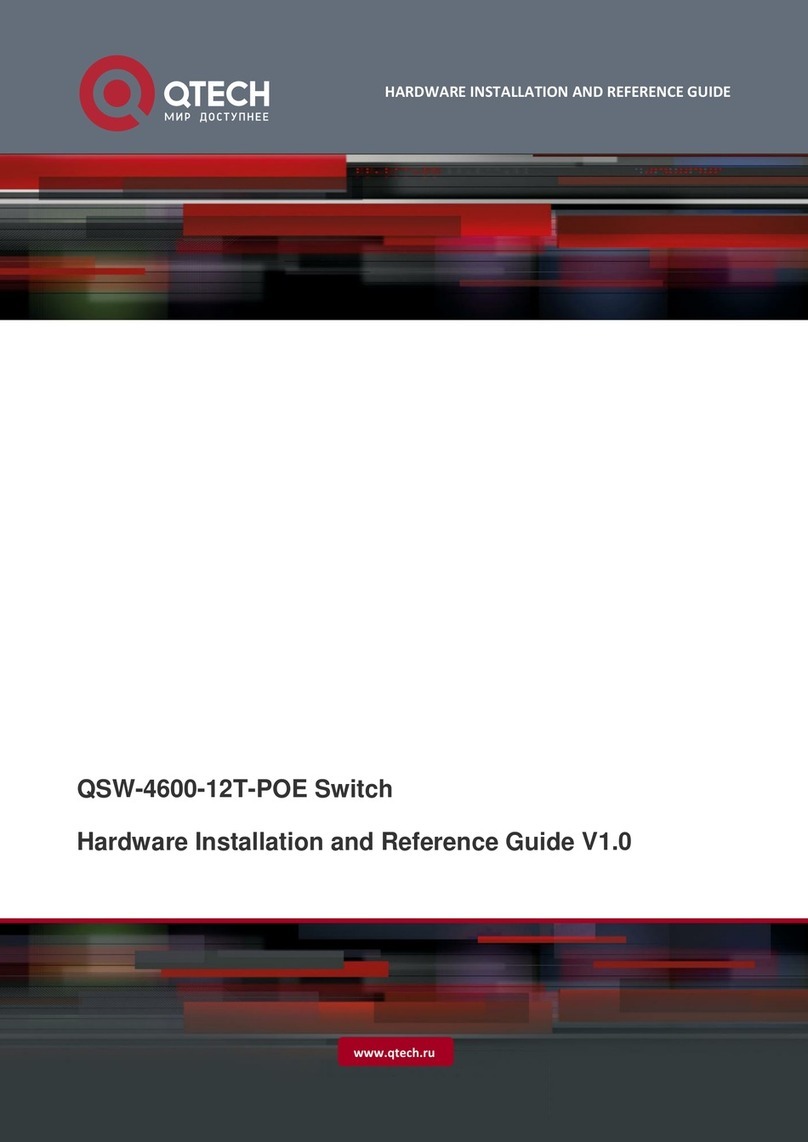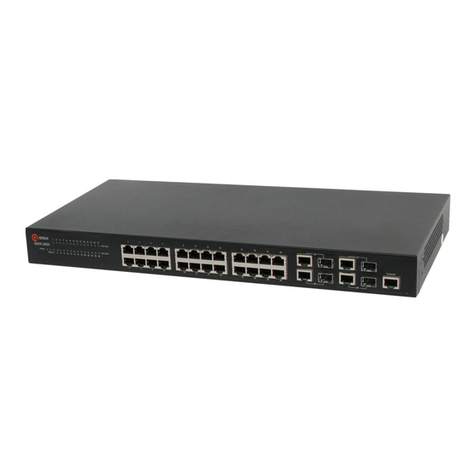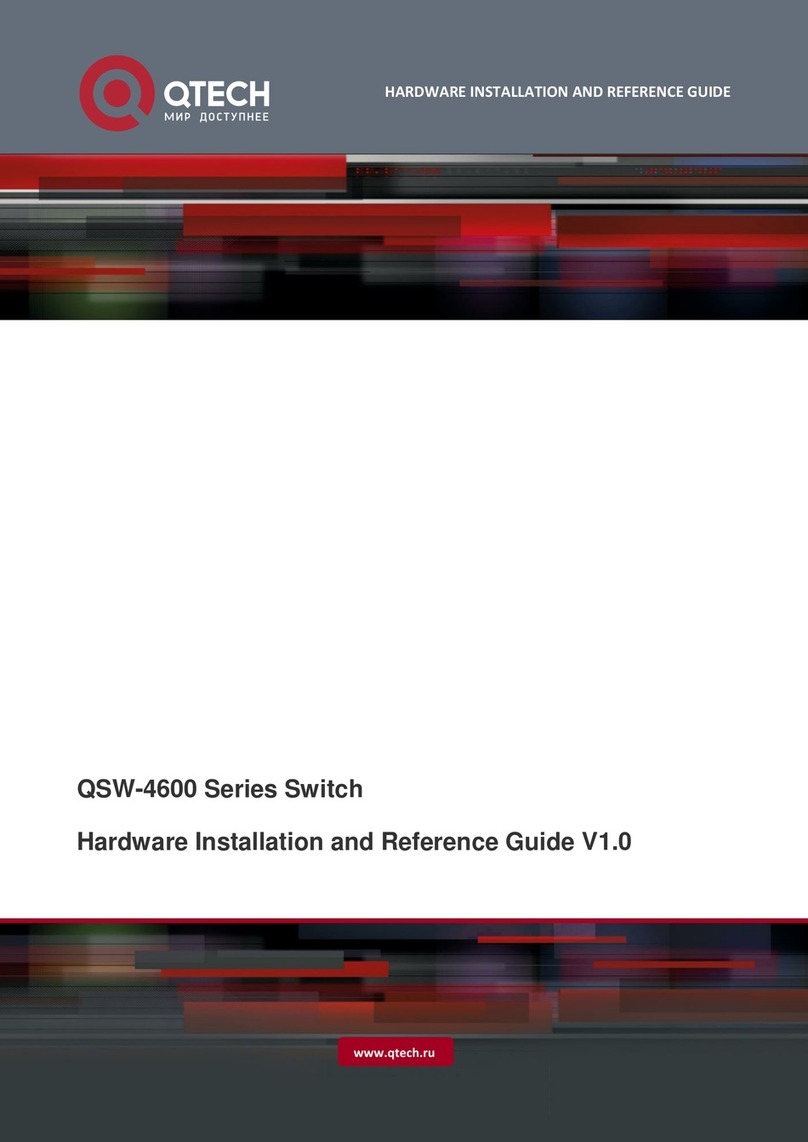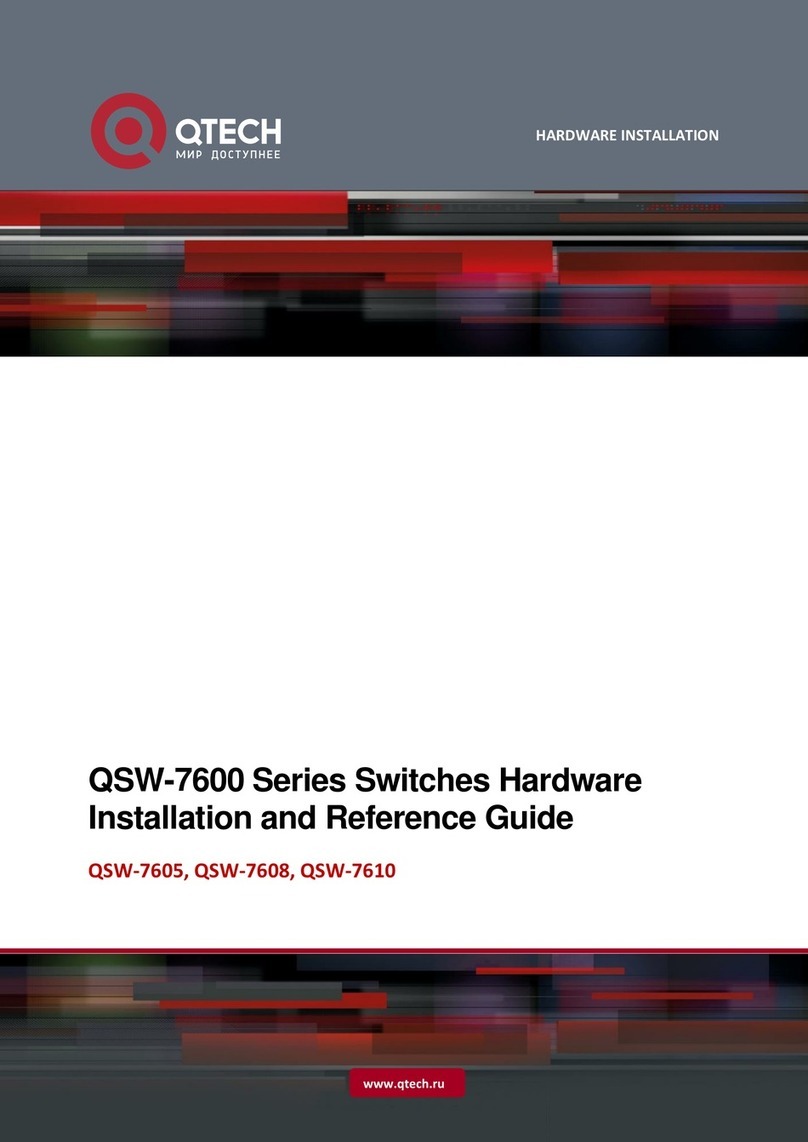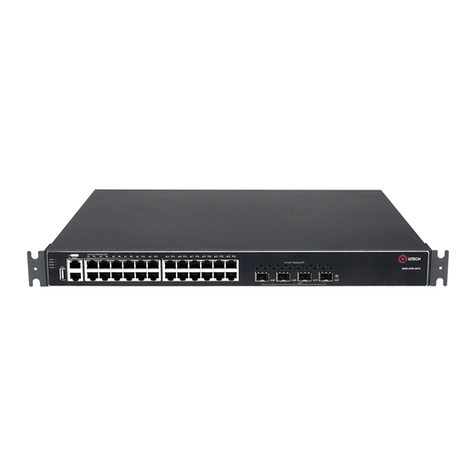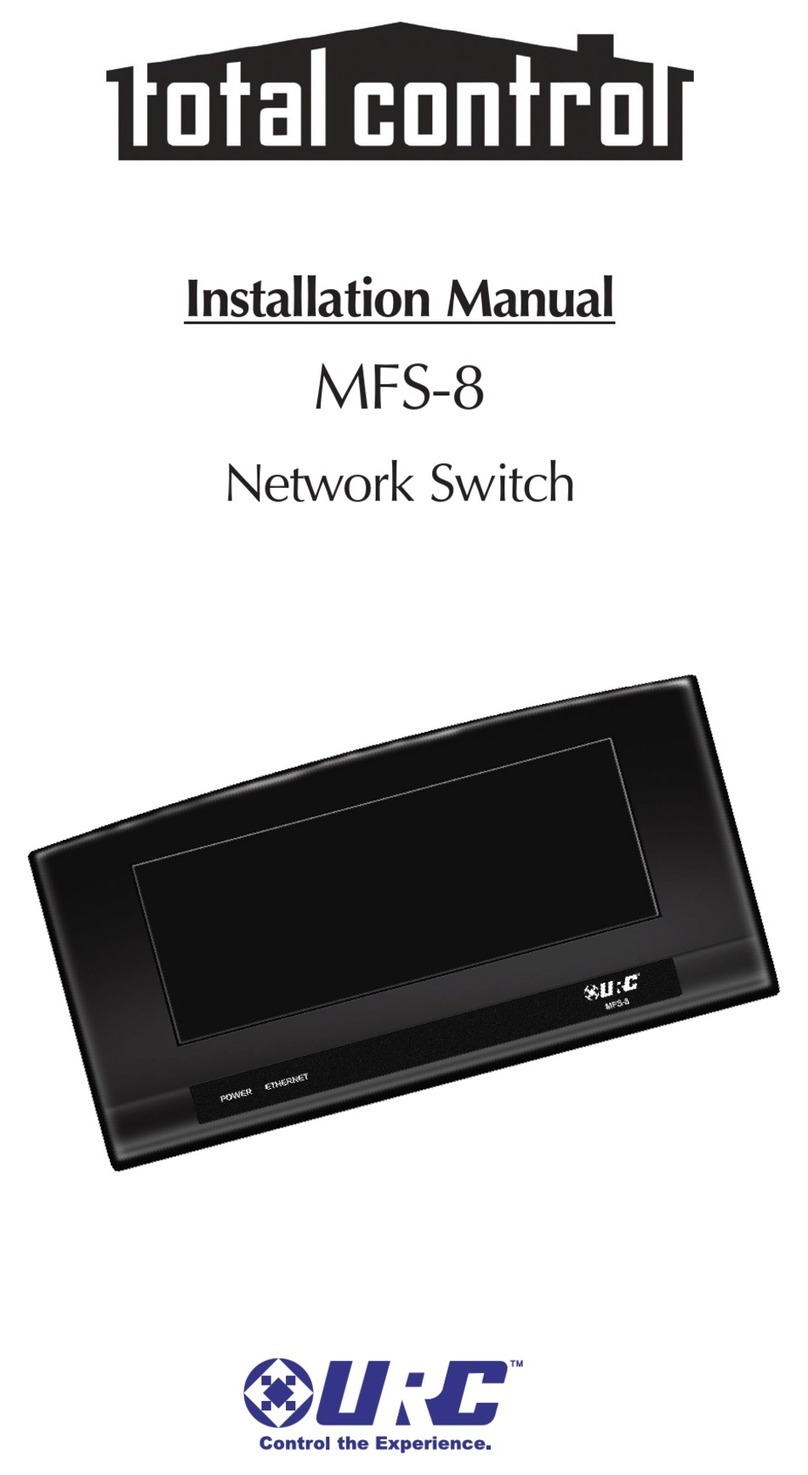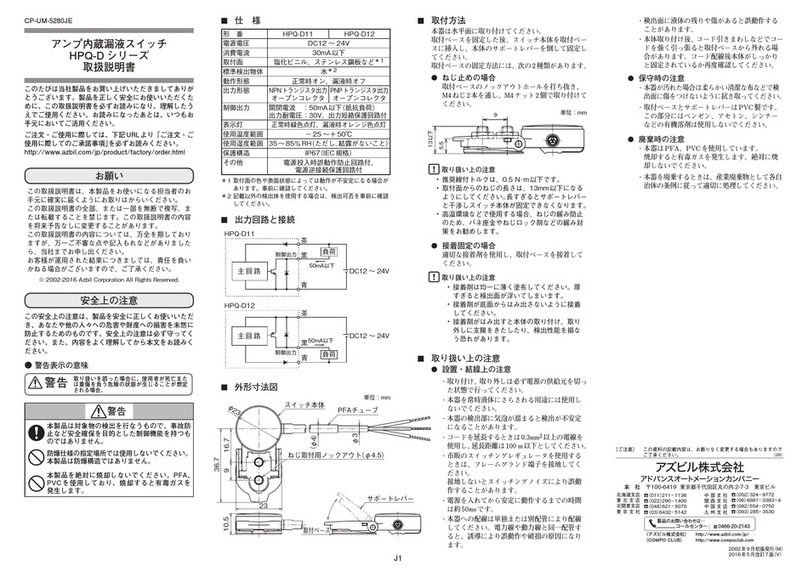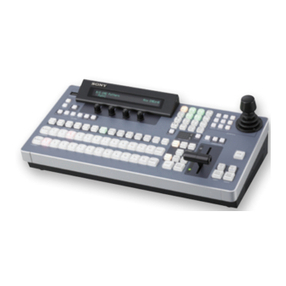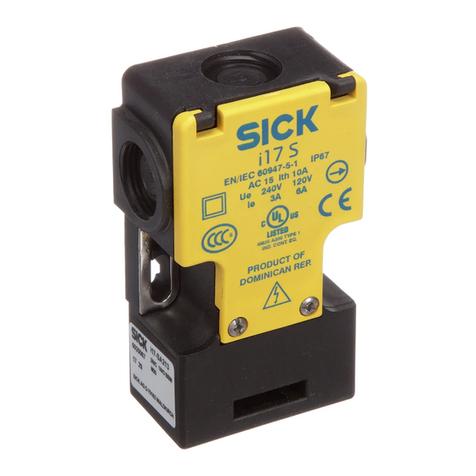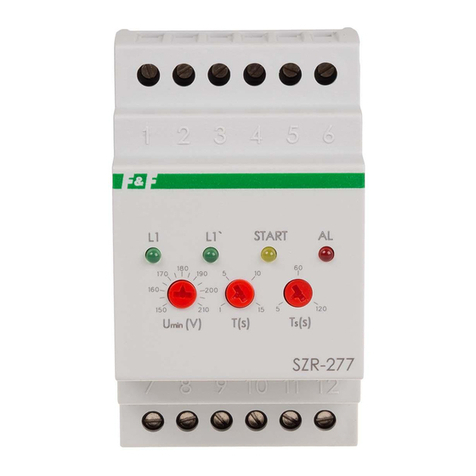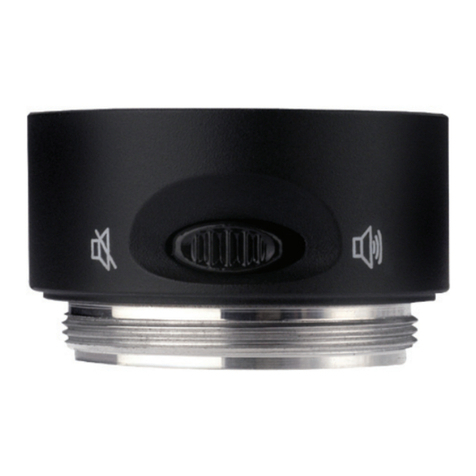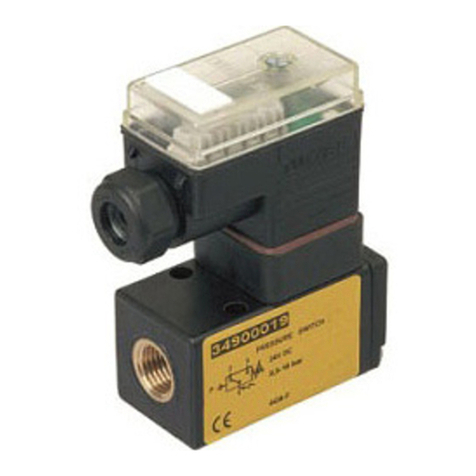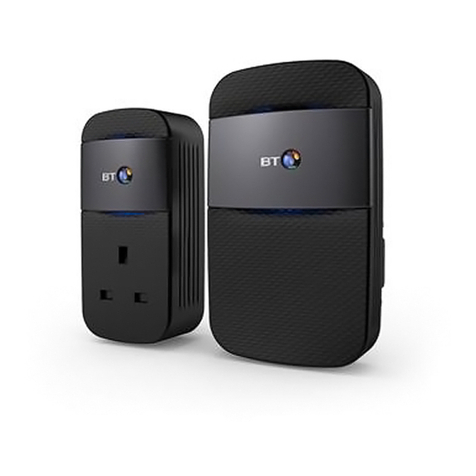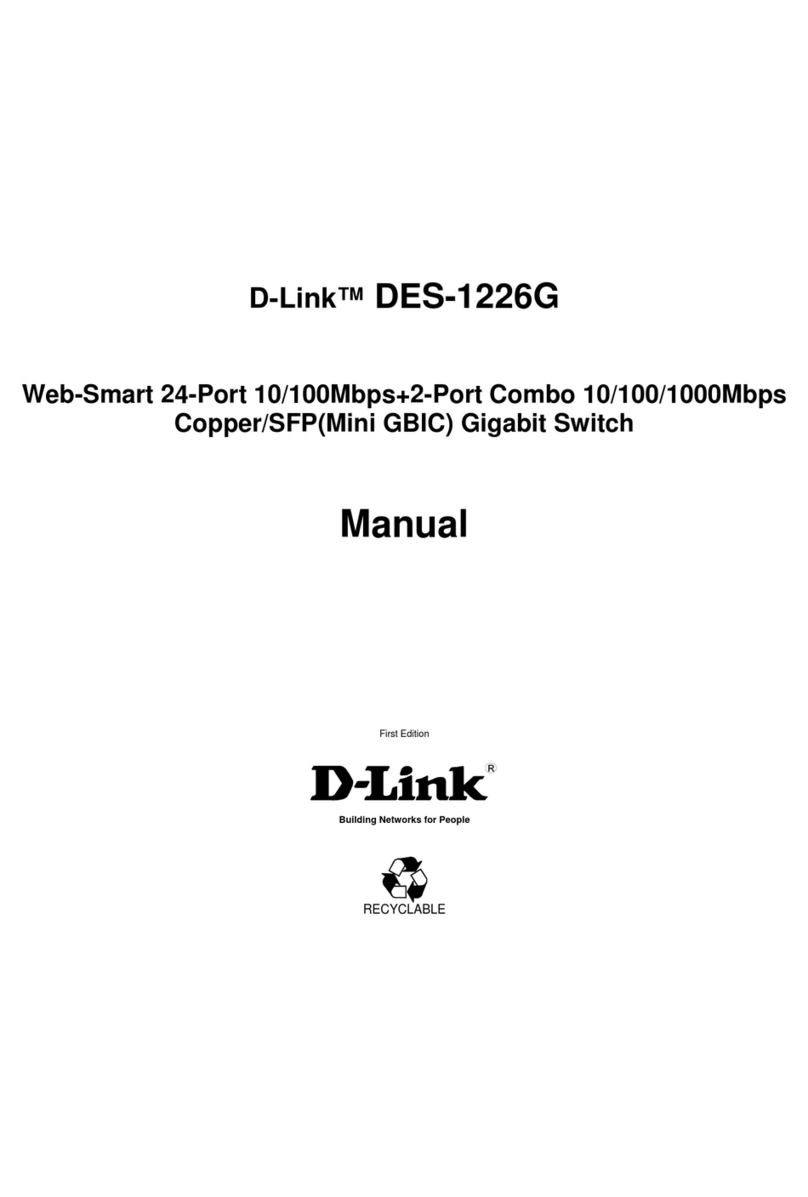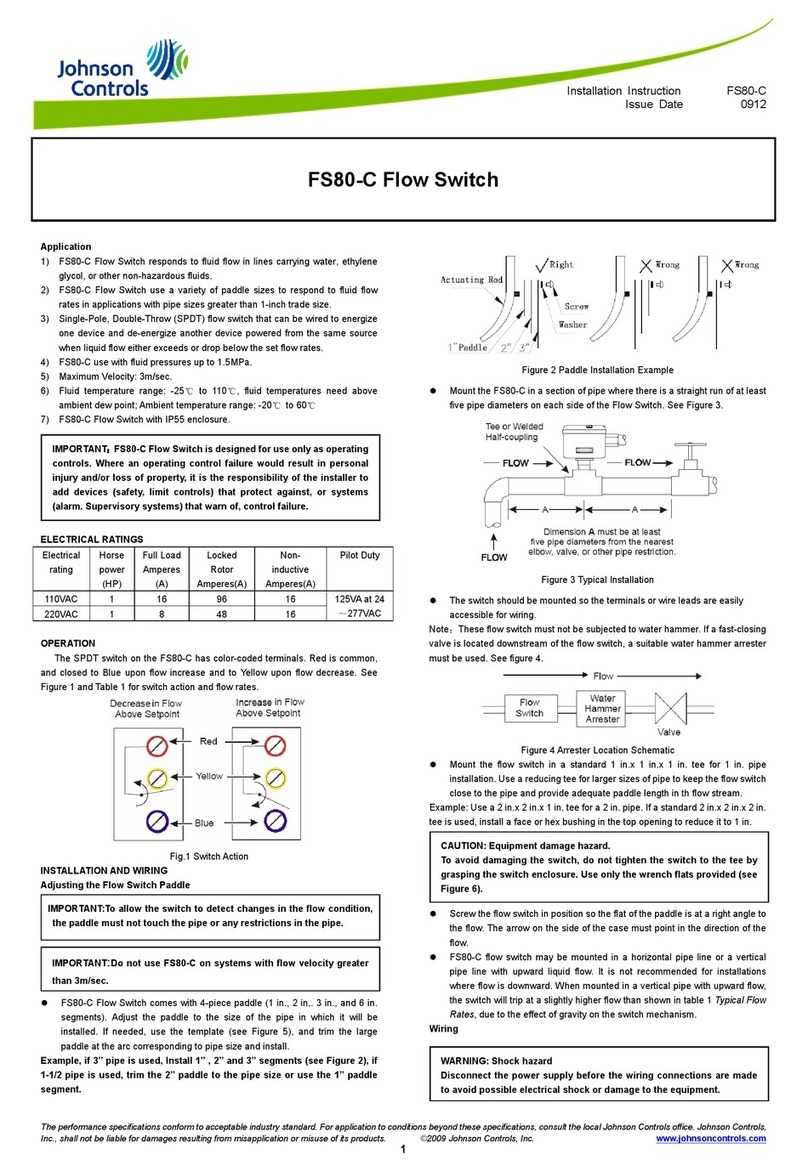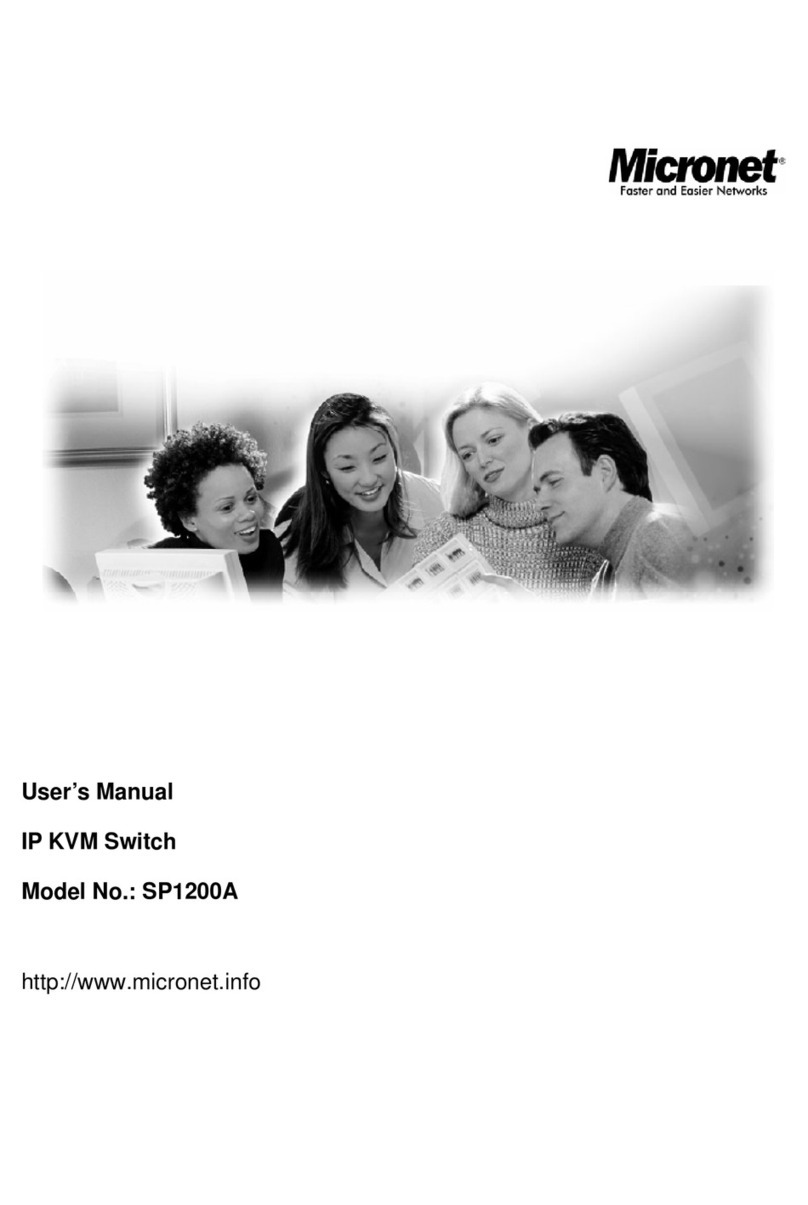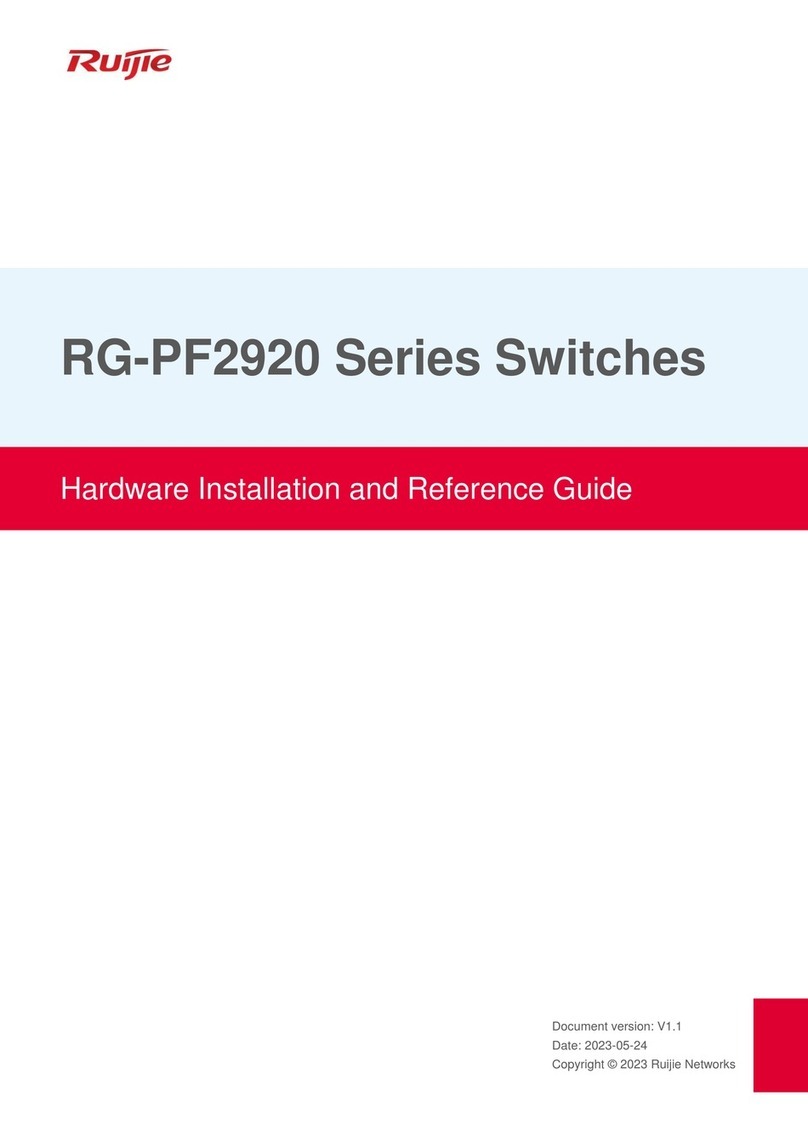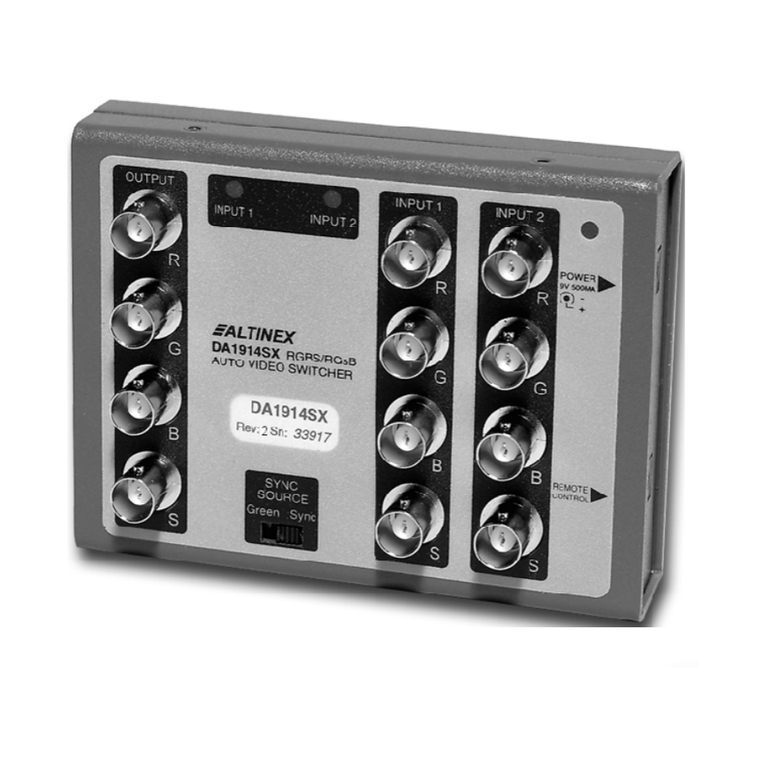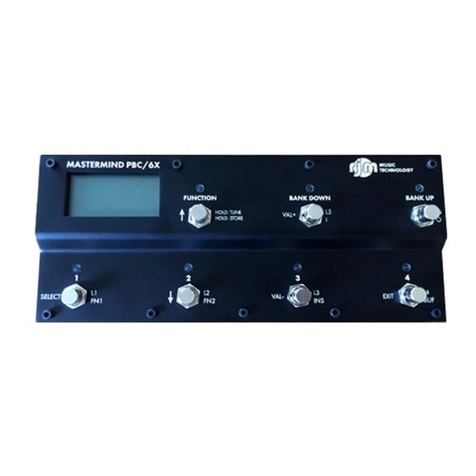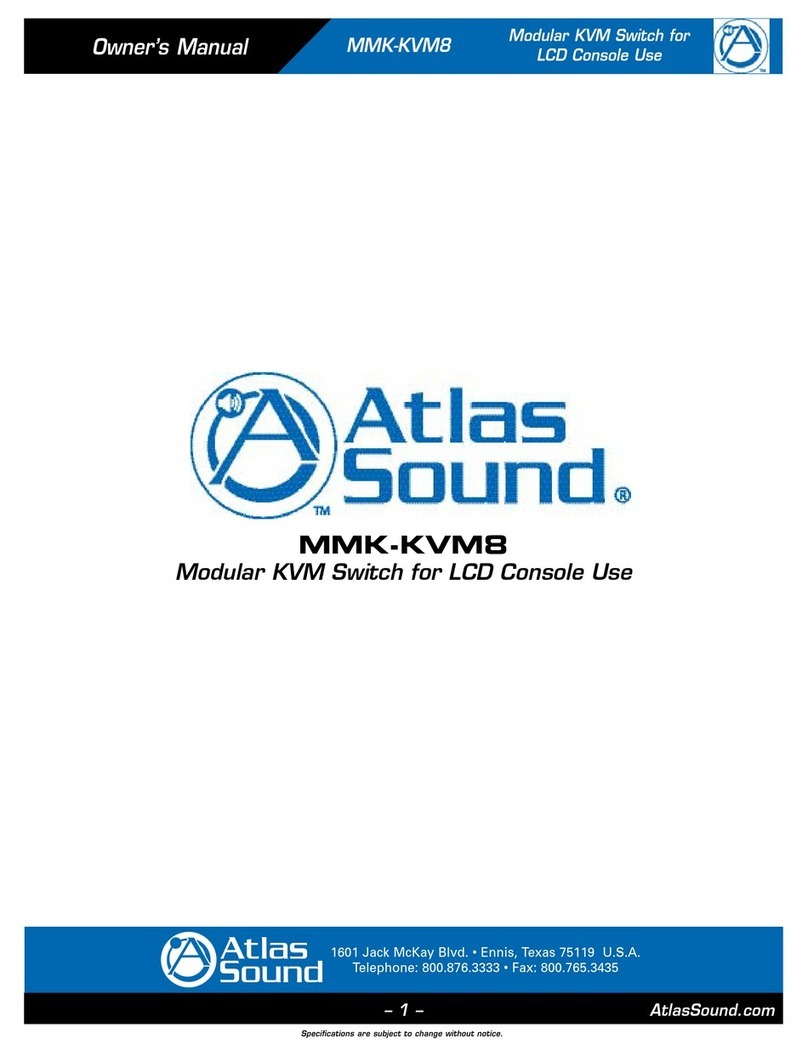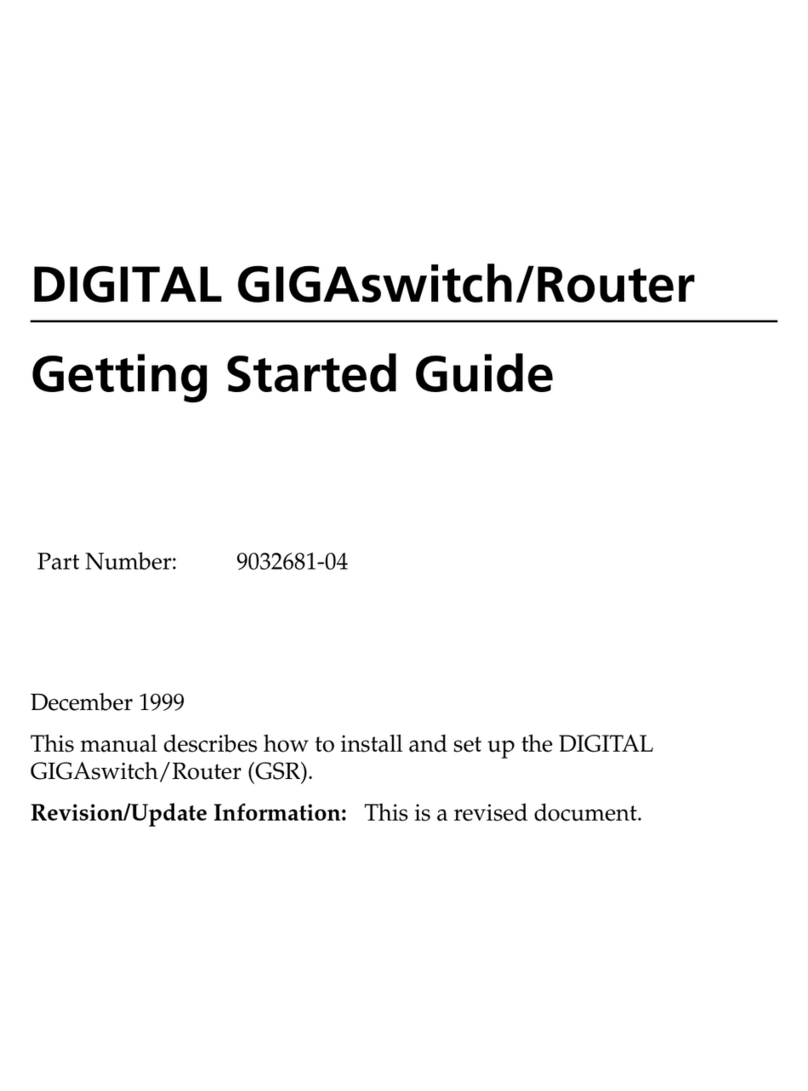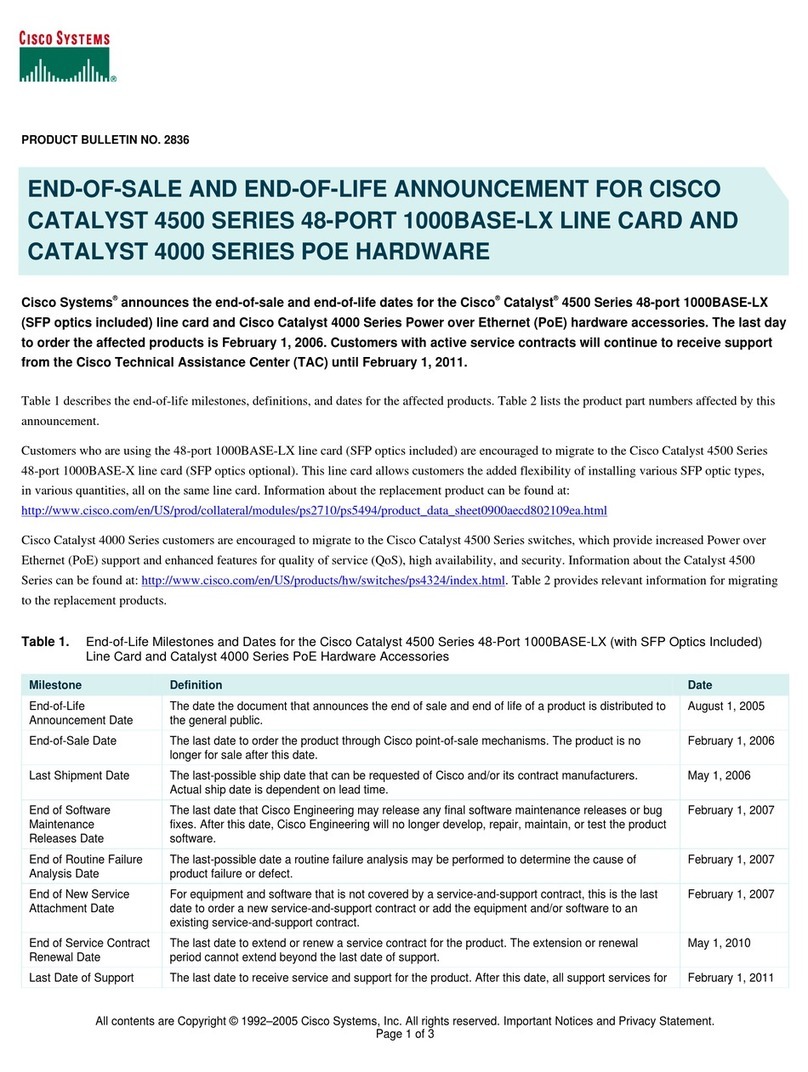Power Supply
The QSW-6900-56LF series switches support power supply the QSW-M-6900LF-PWR. The smart
power supply module supports power management, and the host can read input power, input
current, and temperature in real time. The power supply module supports hot swapping.
The QSW-6900-56LF series switches support 1+1 power supply redundancy. To improve the
stability and reliability of the entire system, it is recommended to configure 1+1 power
supply redundancy. When the two power supply modules work normally, the switch is in the
status of current sharing.
It requires at least one power supply module to work normally. Filler panels need to be
installed in the unoccupied power supply module slots to ensure ventilation and heat
dissipation and avoid dusts.
Heat Dissipation
The working temperature of the QSW-6900-56LF switches is 0°C to 45°C, or 32°F to 113°F, and
the heat dissipation design needs to ensure the stability, safety and maintainability in such
environment. The QSW-6900-56LF series switches adopt fan ventilation and forced convection
to ensure the device can work normally in specified environment. Dust the device every three
months to avoid blocking the ventilation openings.
The QSW-6900-56LF supports QSW-M-6900LF-FAN and provides fan speed regulation, fan
failure warning, and fan hot swapping.
Figure 1-5 Ventilation and Heat Dissipation of the QSW-6900-56LF
